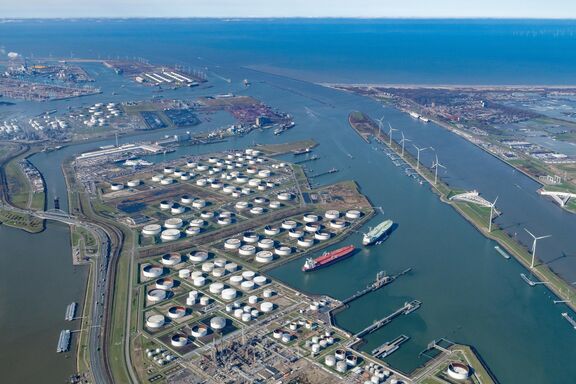H2Global pilot auction: first renewable hydrogen carrier ammonia supply for EU via Port of Rotterdam
Reading time: 2 minutes
Hintco GmbH announces Fertiglobe as the successful bidder of the first H2Global pilot auction for renewable ammonia, funded by the German Government. The winning bidder, Fertiglobe, a strategic partnership between ADNOC and OCI, will start producing renewable ammonia destined for delivery in 2027 for a maximum contract value of EUR 397 million. The renewable ammonia will be delivered to the port of Rotterdam and sold by Hintco as standardized quantities in annual auctions. Supply of renewable ammonia will start at a potential 19,500 tons in 2027 subject to the start of production date and supply availability and rising up to a total of 397,000 tons cumulatively by 2033.

Market maker
Hintco acts as a ‘market maker’ to stimulate emerging markets for clean hydrogen and low-emission fuels. It buys hydrogen from early production facilities and sells it to end-users. Grants bridge the gap between supply prices and demand prices. At this early stage, buyers and sellers have varying expectations on price, volume, and contract terms. Hintco uses H2Global’s double-auction mechanism to bridge those varying expectations. In this way, it mitigates risks and provides the certainty needed for producers to finance projects and end-users to purchase these products on acceptable terms. This first lot of the double sided auction is funded by the German Government who supported with 900 Mio Euro as compensation of the price difference.
Egypt
Fertiglobe will procure the supply of renewable hydrogen from Egypt Green Hydrogen to be used as feedstock for the production of renewable ammonia at Fertiglobe’s existing ammonia plant in Ain Sokhna. The pilot auction established the first price signal at a contract price of EUR 1,000 per ton (including delivery to Europe) and a net price of EUR 811 per ton for renewable ammonia. The produced renewable ammonia will achieve an emissions intensity reduction of approximately 75.5% relative to ammonia produced based on unabated fossil fuels. The emissions savings associated with the contractual maximum supply commitment (397 kt over seven years) are equivalent to the annual emissions of 62,000 cars.